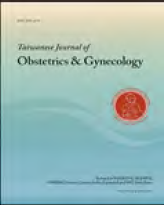Chia-Lung Tsai, Yun-Shien Lee, Angel Chao, Chih-Feng Yen, Hsin-Shih Wang, Tzu-Hao Wang
Abstract
Objective: We have recently reported that stress-induced phosphoprotein 1 (STIP1) is over-expressed in endometriosis/adenomyosis tissues. STIP1 may also be involved in immune regulation, thus we attempted to study the association between STIP1 single nucleotide polymorphisms (SNPs) and endometriosis/adenomyosis.
Materials and methods: Five STIP1 SNPs (rs7941773, rs2845597, rs4980524, rs2282490, and rs2236647) were selected for genotyping with matrix-assisted laser desorption ionization time-of-flight mass spectrometry (MALDI-TOF MS) in 286 patients with endometriosis/adenomyosis and 288 healthy postmenopausal controls. In vitro studies included luciferase promoter reporter assays and western blot analysis for STIP1 and MMP9 proteins.
Results: The frequency of the G allele at rs4980524 was significantly higher in patients with endometriosis/adenomyosis than in control women. The promoter reporter with rs4980524 GG genotype significantly increased luciferase activity than that with TT genotype in endometrial cancer RL95-2 cells, and the primary endometrial stromal cells carrying rs4980524 GG genotype expressed higher protein levels of STIP1 and MMP9 than those carrying the TT one.
Conclusion: The G/G allele of STIP1 SNP rs4980524 is associated with the increased expression of STIP1 and MMP9 in endometriosis. Further validation in independent cohorts of endometriosis patients may prove its usefulness as a genetic risk maker for endometriosis/adenomyosis.
Keywords: Endometriosis; SNP; STIP1.
Taiwan J Obstet Gynecol. 2018 Apr;57(2):270-275. doi: 10.1016/j.tjog.2018.03.001. PMID: 29673672.




